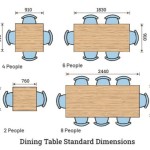Small Vegetable Garden Design
Cultivating a vegetable garden can be a rewarding and delicious experience, even if you have limited space. A small vegetable garden can provide fresh, flavorful produce all season long, and the process itself can be incredibly fulfilling. The key to success lies in smart design and planning, maximizing every inch of available area while ensuring the plants thrive. This article will explore various aspects of small vegetable garden design, offering practical tips and strategies for beginners and experienced gardeners alike.
Maximizing Space with Raised Beds and Vertical Gardening
One of the most effective ways to maximize space in a small garden is by utilizing raised beds. These structures elevate the growing area, providing better drainage and allowing for easier access to your plants. Raised beds can be built from various materials such as wood, stone, or even recycled pallets. Their compact design allows for optimal utilization of vertical space, making them ideal for small gardens. You can also consider vertical gardening methods like trellises, hanging baskets, and wall-mounted planters, expanding your garden's footprint without taking up valuable ground space. Vertical gardening is particularly well-suited for space-saving crops like tomatoes, cucumbers, and beans.
Smart Plant Selection: Choosing the Right Crops
The success of your small garden hinges upon selecting the right crops. Opt for varieties that thrive in your climate and soil conditions. Consider compact, bush-like vegetables like bush beans, dwarf tomatoes, and compact lettuce varieties. Also, choose crops with varying maturity times, allowing for a continuous harvest throughout the growing season. For instance, you can plant early-maturing radishes alongside slower-growing carrots, ensuring you have a steady supply of fresh produce. Furthermore, consider your family's culinary preferences and choose crops you will actually enjoy consuming.
Optimizing Layout and Companion Planting
Strategic layout plays a vital role in maximizing space and fostering a thriving garden ecosystem. Consider companion planting techniques, where certain plant combinations enhance each other's growth and protect against pests. For example, planting onions near carrots can deter carrot root flies, while basil planted alongside tomatoes enhances their flavor and repels insects. Use rows or square-foot gardening designs that promote efficient space allocation while providing ample sunlight for each plant. Additionally, incorporate walkways between rows to facilitate easy access and maintenance.
Choosing the Right Soil for Your Small Garden
Soil quality is paramount for healthy plant growth. If your garden space has poor soil, invest in amending it with compost, manure, or other organic materials. This improves drainage, aeration, and nutrient content, creating a hospitable environment for your plants to thrive. Consider using raised beds with a dedicated soil mix tailored to your chosen crops. Pre-made raised bed mixes offer a convenient and effective option. Regularly enriching your soil with organic matter will guarantee continued healthy growth and bountiful yields.
Water Wisely: Efficient Irrigation for Small Gardens
Maintaining consistent moisture levels is essential for any garden, especially in small spaces where plants are often in close proximity. Explore various irrigation methods such as drip irrigation, which delivers water directly to the roots, minimizing waste and reducing evaporation. Soaker hoses are another efficient option, providing a gentle and consistent water flow. For smaller plots, watering cans can be an effective solution, although they may require more frequent watering. Monitor your plants for signs of dehydration and adjust your watering schedule accordingly.
Pest and Disease Management in a Small Garden
Even in small gardens, pests and diseases can pose threats to plant health. Implement preventative measures such as crop rotation, companion planting, and proper sanitation to discourage pests and diseases. Regularly inspect your plants for signs of infestation or disease, and address issues promptly. Consider using natural pest control methods like beneficial insects, insecticidal soap, or neem oil, minimizing reliance on harsh chemicals.
Harvesting and Enjoying Your Small Garden's Bounty
The final stage of your small garden journey is harvesting and enjoying the fruits of your labor. Harvest each vegetable at its peak ripeness to ensure optimal flavor and quality. Store perishable items properly, extending their shelf life. Take pride in your accomplishment, sharing your fresh produce with loved ones. The satisfaction of growing your own food is a rewarding experience, enriching not only your palate but also fostering a deeper connection with nature.

Small Vegetable Garden Ideas Gate

Small Vegetable Garden Ideas Gate

Small Vegetable Garden Ideas Tips Design

Small Vegetable Garden Ideas 15 Ways To Maximize Your Space

Small Vegetable Garden Ideas Gate

19 Vegetable Garden Plans Layout Ideas That Will Inspire You Summer Vegetables Planning

Veggie Garden Design Ideas Make Your Vegetable Beautiful Finegardening

7 Vegetable Garden Layout Ideas To Grow More Food In Less Space

How To Design The Perfect Vegetable Garden Layout Plant

25 Incredible Vegetable Garden Ideas Trees Com
Related Posts








